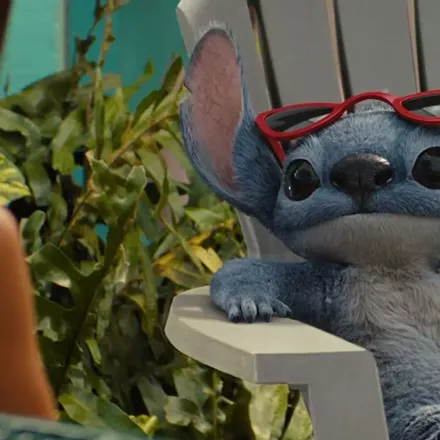Still Dead
Match Point can’t deliver the latest attempt at a Woody Allen “resurrectionâ€.
By Greg BeachamWoody Allen fans are like evangelicals eagerly awaiting the Second Coming'only their god is still technically here. A full half-dozen times since 1998, we’ve been told Allen’s newest film is his return to relevance after an epic decline. Woody is terribly important to his faithful (the Left Behindriks, if you will) because those legions define their youthful awakening or cultural sensibility through the prism of the trenchant genius he used to be. The senile, sad 70-year-old currently impersonating him just can’t measure up, no matter how hard his fans wish it.
It has happened again with Match Point, a humorless, self-plagiaristic melodrama widely and inexplicably hailed as the for-real-this-time resurrection of a dead artist. They want to believe, but this movie is better than his recent failures only in superficial ways, and no improvements last to the closing credits. It’s not just because he’s old, or because karma is biting his ass for marrying his daughter. He has been writing and producing roughly one screenplay every 12 months for many years, and I don’t think anybody has ever been good enough to maintain quality at that pace. Allen’s vitality just isn’t there, and no amount of wishing will make it so.
At least Allen left New York for this one, choosing to roll out another photocopied, tin-eared meditation on infidelity this time among really rich people in England’s poshest tennis clubs, apartments and country estates. It’s actually quite perfect; nobody adores an American celebrity with questionable talents and morals more than the British, and few filmmakers are more fascinated with wealthy, pretentious fops than Allen.
Chris Wilton (Jonathan Rhys-Meyers) is a failed tennis pro working as an instructor when he buddies up with Tom (Matthew Goode), the scion of the terribly posh Hewett family. Chris insinuates himself, dating Tom’s charming sister, Chloe (Emily Mortimer), and oddly excelling in a job in one of their father’s (Brian Cox) finance companies despite no such background.
Match Point is all about Chris, and it collapses with ambiguity. He doesn’t seem evil, but he doesn’t seem good, either, and we’re repeatedly told he’s just lucky; Rhys-Meyers’ terminally bland performance dilutes any mystery around the character before Woody even has a chance to waste it. Chris marries Chloe but eventually begins an affair with Nola (Scarlett Johansson), Tom’s tasty fiancée and a struggling actress from Colorahhhdo (whoops). Chloe wants a baby, and Nola wants him to leave Chloe; if you’ve seen Crimes and Misdemeanors, you know Allen’s solution to this problem, and all of his allusions to Dostoyevsky won’t disguise the retread.
Match Point is Allen’s longest film, and it isn’t entirely awful. The tidy cinematography is genuinely nice to look at, and though his London is just as fabulistic as his Manhattan, it’s somehow less grating to be in the theme park that is American Movie Europe. The dialogue is mostly straight and sharp, with fewer nobody-talks-like-that moments than in any of his movies in the past decade. But gradually and dismayingly, we realize that’s because nobody is saying anything clever or weighty or even slightly quotable. It doesn’t contain a single attempt at a joke that I could discern.
And without revealing too much, let’s say the third act is full of police-procedural holes that Allen neither has the interest nor ability to fill. He clearly didn’t think out what was going on, instead hiding under the opening scene’s conceit that everybody’s fate depends on luck. There are deeper plastic pools at Toys“Râ€Us. Allen was similarly sloppy in Crimes and Misdemeanors'to quote Sam Waterston’s rabbi character, “Sometimes to have a little good luck is the most brilliant planâ€'but that technical ineptitude was hidden in a humorous, emotional story, not the tedium and bumbling misdirection here.
Will the real Allen ever return to his flock? There’s no reason to think so, but faith and reason are different things. In fact, Woody could probably make a really boring movie about that.
More by Greg Beacham
-
Tragically Hip
The Devil and Daniel Johnston tells the sad story of a troubled hipster icon.
- May 25, 2006
-
The Wages of Spin
Thank You for Smoking turns the politics of moral relativism into smart satire.
- Apr 6, 2006
-
Heir of the Dogme
Why can’t we all make culturally ignorant art movies like Dear Wendy?
- Feb 23, 2006
- More »







